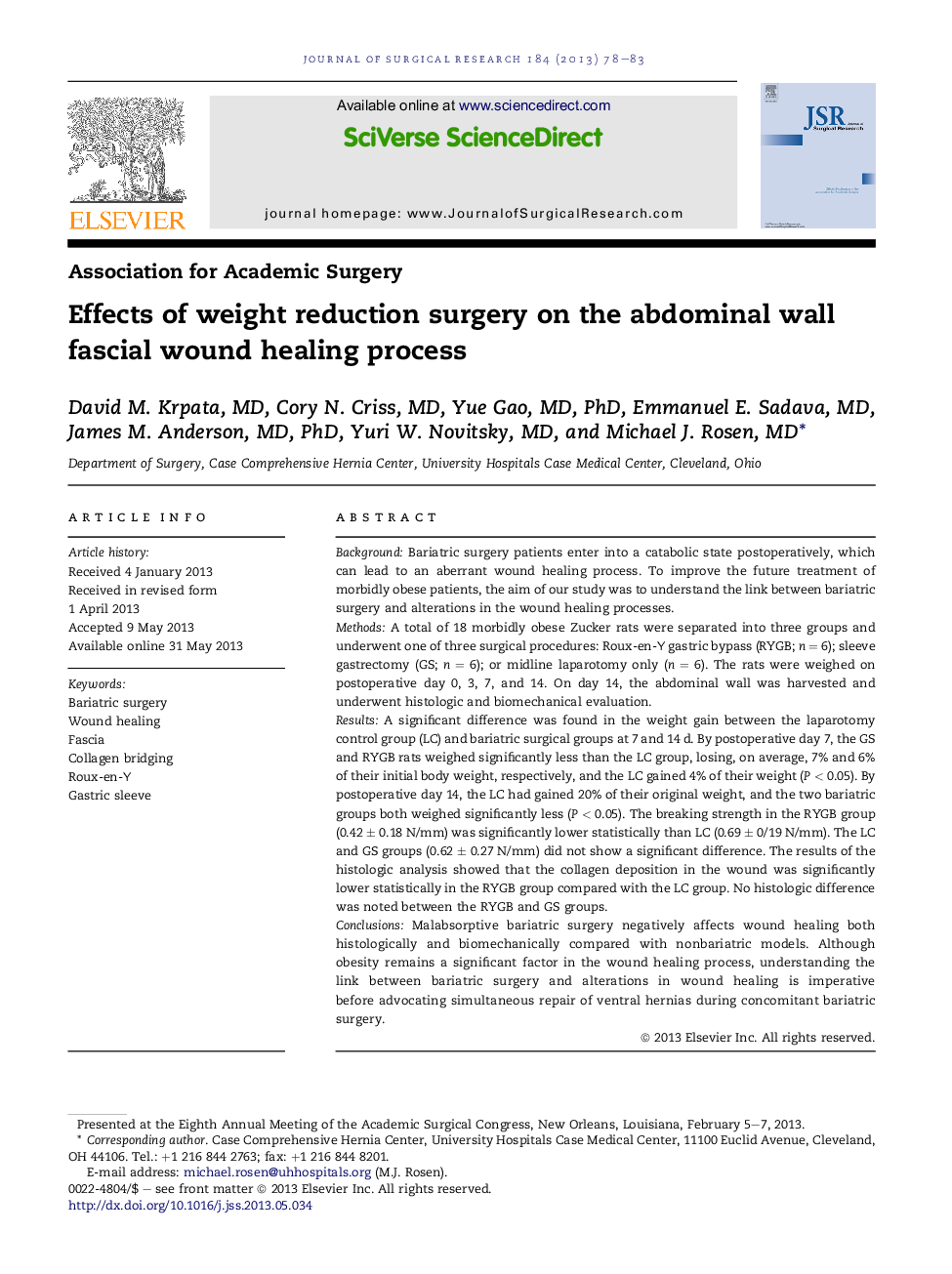| کد مقاله | کد نشریه | سال انتشار | مقاله انگلیسی | نسخه تمام متن |
|---|---|---|---|---|
| 4300573 | 1288422 | 2013 | 6 صفحه PDF | دانلود رایگان |

BackgroundBariatric surgery patients enter into a catabolic state postoperatively, which can lead to an aberrant wound healing process. To improve the future treatment of morbidly obese patients, the aim of our study was to understand the link between bariatric surgery and alterations in the wound healing processes.MethodsA total of 18 morbidly obese Zucker rats were separated into three groups and underwent one of three surgical procedures: Roux-en-Y gastric bypass (RYGB; n = 6); sleeve gastrectomy (GS; n = 6); or midline laparotomy only (n = 6). The rats were weighed on postoperative day 0, 3, 7, and 14. On day 14, the abdominal wall was harvested and underwent histologic and biomechanical evaluation.ResultsA significant difference was found in the weight gain between the laparotomy control group (LC) and bariatric surgical groups at 7 and 14 d. By postoperative day 7, the GS and RYGB rats weighed significantly less than the LC group, losing, on average, 7% and 6% of their initial body weight, respectively, and the LC gained 4% of their weight (P < 0.05). By postoperative day 14, the LC had gained 20% of their original weight, and the two bariatric groups both weighed significantly less (P < 0.05). The breaking strength in the RYGB group (0.42 ± 0.18 N/mm) was significantly lower statistically than LC (0.69 ± 0/19 N/mm). The LC and GS groups (0.62 ± 0.27 N/mm) did not show a significant difference. The results of the histologic analysis showed that the collagen deposition in the wound was significantly lower statistically in the RYGB group compared with the LC group. No histologic difference was noted between the RYGB and GS groups.ConclusionsMalabsorptive bariatric surgery negatively affects wound healing both histologically and biomechanically compared with nonbariatric models. Although obesity remains a significant factor in the wound healing process, understanding the link between bariatric surgery and alterations in wound healing is imperative before advocating simultaneous repair of ventral hernias during concomitant bariatric surgery.
Journal: Journal of Surgical Research - Volume 184, Issue 1, September 2013, Pages 78–83